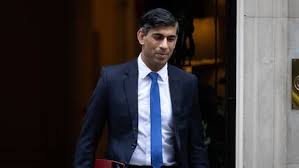Rishi Sunak: Unfolding the Political Trajectory of the UK Prime Minister

Introduction
Rishi Sunak has emerged as a significant figure in British politics, particularly following his appointment as Prime Minister in October 2022. His rise to this position coincides with a turbulent period marked by economic challenges, societal shifts, and political scrutiny. Understanding Sunak’s background and policies is essential not only for grasping current political dynamics in the UK but also for anticipating future developments in the British economy and governance.
Early Life and Background
Rishi Sunak was born on May 12, 1980, in Southampton to Indian parents, who migrated to the UK from East Africa. His educational journey took him to Oxford University, where he studied Philosophy, Politics, and Economics (PPE), followed by an MBA from Stanford University. Before entering politics, Sunak worked at investment firms and served as the Chief Secretary to the Treasury, showcasing his strong economic background.
Political Career and Leadership
Sunak’s political career began with his election as the Member of Parliament for Richmond in North Yorkshire in 2015. He gained prominence during his tenure as Chancellor of the Exchequer from February 2020 to July 2021, where he was pivotal in implementing policies like the furlough scheme to support businesses and workers during the COVID-19 pandemic. His handling of the economic fallout bolstered his public image, positioning him as a potential leadership candidate.
Upon becoming Prime Minister, Sunak faced immediate challenges, including inflation rates reaching a 40-year high and public discontent regarding the cost of living crisis. His government has focused on measures to stabilize the economy, including initiatives aimed at curbing inflation and supporting energy costs for consumers. However, the effectiveness of these measures has been met with critical scrutiny and varying public opinion.
Current Policies and Future Directions
Rishi Sunak’s administration has emphasised a commitment to fiscal responsibility, aiming to balance the budget while fostering growth and innovation. Key policies announced in 2023 include increased funding for education, investment in green technologies, and strategic plans to bolster the UK’s position in the global market. These efforts are viewed as essential in addressing immediate concerns while setting the groundwork for long-term economic stability and growth.
Conclusion
As Rishi Sunak navigates the challenges of governance in a complex political landscape, his leadership will undoubtedly shape the future trajectory of the UK. Observers and citizens alike will be watching closely to see how his policies unfold in the coming years. The significance of Sunak’s choices and their impact on the British economy and society cannot be understated, thus making it crucial for all stakeholders to stay informed on developments as they arise.
You may also like

The Important Role of Government in Modern Society

The Evolving Role of the Manager in Modern Business

Understanding the Current Political Landscape in the UK
SEARCH
LAST NEWS
- Remembering Wendy Richard: The Promise to Co-Star Natalie Cassidy
- How Did Anglian Water Achieve an ‘Essentials’ Rating for Mental Health Accessibility?
- Shai Hope Leads West Indies in T20 World Cup Clash Against South Africa
- What We Know About Weston McKennie: Future at Juventus and Past at Leeds
- What We Know About the Upcoming Live Nation Antitrust Trial